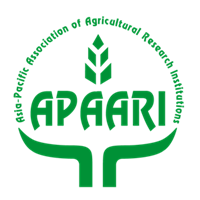I used to be ashamed. The influence of an educational program on tribal and non-tribal childrens knowledge and valuation of wild food plants
This study examines the influence of an extra-curricular educational program on children's knowledge and cultural valuation of wild food plants, which are an important component of their diets. This program aims to reinforce children's traditional knowledge and values around biological resources in Wayanad, India's Western Ghats, encouraging tribal and non-tribal children to learn from each other and from their own communities. Results show that the educational program has enhanced children's ability to identify selected wild food plants. Moreover, strong social stigma related to wild food plant gathering also appears to have been effectively countered, and the program seems to have created more self-confidence among the children about (a) the perceptions of others' social attitudes towards their gathering practices, and (b) the importance of these plants as part of their diets and cultures. ?? 2013 Elsevier Inc.
Related Resources
Science and Technology in Civil Society Innovation Trajectory of Spirulina Algal Technology
The role of civil society in influencing public opinion towards more democratic and developmental approaches is now well-recognised in diverse fields such as health, education, livelihoods, issues relating to disadvantaged social groups and the environment. Yet, science and technology in...
Evaluation as a multi-stakeholder learning process : the Programme for Capacity and Theory Building for Universities and Research Centres in Endogenous Development (CAPTURED ) in Bolivia , Ghana and India
An evaluation is a particular multi-stakeholder event during which different actors share and analyse results after several years. If the evaluation has a strong formative purpose, the evaluation team is requested to facilitate a learning process involving all key actors....

Report on Prioritization of Demand-driven Agricultural Research for Development in Bangladesh
The International Food Policy Research Institute (IFPRI) partnered with the Asia-Pacific Association of Agricultural Research Institutions (APAARI) in 2011 to conduct a series of policy dialogues on the prioritization of demand-driven agricultural research for development in South Asia. Dialogues were conducted with...

FairTrade’s theory of change: an evaluation based on the cooperative life cycle framework and mixed methods
This study presents a quasi-experimental analysis of the impact of FairTrade certification on the commercial performance of coffee farmers in Tanzania. In doing so the study emphasises the importance of a well-contextualised theory of change as a basis for evaluation...
Facilitating Agricultural Innovation Systems: A critical realist approach
The turn of agrarian sciences and agricultural extension from reductionist and transfer of technology, respectively, towards systemic approaches has transformed agricultural/rural development thinking in the last decades. Nevertheless, the emergence of Agricultural Innovation Systems (AIS) has to confront a number...


